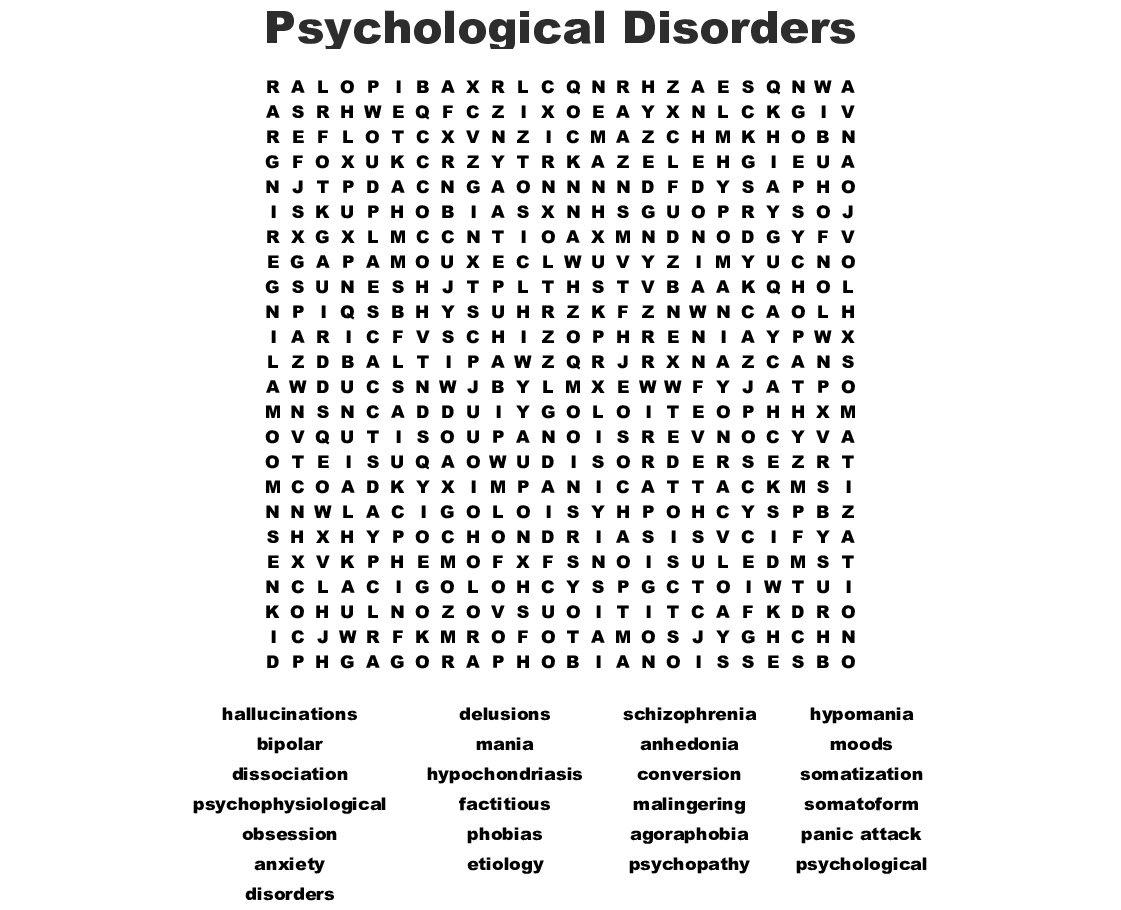Every day, we engage with the world around us, making decisions and solving problems, often without even realizing it. The human mind is a complex puzzle itself, and psychology puzzles help us explore the intricacies of our thoughts, emotions, and behaviors. These engaging challenges not only entertain but also provide insight into how we think and why we act in certain ways. By delving into psychology puzzles, we can unlock new perspectives on human cognition and emotional responses.
Whether they take the form of riddles, brain teasers, or thought-provoking scenarios, psychology puzzles captivate our attention and stimulate our curiosity. They push us to think critically, question our assumptions, and consider alternative viewpoints. As we work through these challenges, we develop a better understanding of ourselves and those around us, ultimately enhancing our social interactions and emotional intelligence.
Moreover, psychology puzzles are not just a source of entertainment; they also have practical applications in fields like education, therapy, and personal development. By incorporating these puzzles into our daily lives, we can cultivate our problem-solving skills, improve our cognitive flexibility, and foster a greater appreciation for the complexities of human behavior. So, let’s dive deeper into the world of psychology puzzles and uncover the secrets they hold!
What Are Psychology Puzzles?
Psychology puzzles encompass a variety of formats, including logic puzzles, riddles, and complex scenarios that challenge our understanding of human behavior. They often require us to think outside the box, analyze information critically, and apply psychological principles to arrive at solutions. Some popular types of psychology puzzles include:
- Logic puzzles that involve deduction and reasoning
- Riddles that play on words and cognitive biases
- Scenarios that challenge our ethical decision-making
- Visual puzzles that test our perception and attention
Why Are Psychology Puzzles Important?
Engaging with psychology puzzles offers numerous benefits, both cognitive and social. Some of the key reasons to explore these puzzles include:
- Enhancing problem-solving skills: Tackling puzzles sharpens our analytical thinking and encourages creative solutions.
- Improving emotional intelligence: Many puzzles help us empathize with others and understand diverse perspectives.
- Boosting memory and concentration: Regular engagement with puzzles can improve cognitive function and mental agility.
- Fostering social connections: Sharing and discussing puzzles can strengthen friendships and create bonds over shared experiences.
How Can Psychology Puzzles Be Used in Therapy?
Therapists often incorporate psychology puzzles into their practice to facilitate discussions and help clients explore their emotions. Some ways these puzzles can be used in therapy include:
- Encouraging self-reflection and personal insights
- Helping clients identify patterns in their thoughts and behaviors
- Promoting problem-solving strategies for overcoming challenges
- Building rapport between therapist and client through engaging activities
Can Psychology Puzzles Help in Education?
Psychology puzzles can also play a significant role in educational settings. By incorporating them into the curriculum, teachers can:
- Encourage critical thinking and cognitive development
- Foster collaborative learning through group problem-solving activities
- Enhance student engagement and motivation
- Introduce complex psychological concepts in an accessible way
What Are Some Popular Psychology Puzzles to Try?
If you're eager to dive into psychology puzzles, here are a few popular ones to get you started:
- The Monty Hall Problem: A probability puzzle that challenges our understanding of decision-making under uncertainty.
- The Trolley Problem: An ethical dilemma that explores moral decision-making and the value of human life.
- Classic Logic Puzzles: Puzzles like the "Two Doors" riddle which test your deductive reasoning skills.
- Visual Illusions: Optical illusions that reveal interesting insights about perception and cognition.
How Can I Create My Own Psychology Puzzles?
Creating your own psychology puzzles can be a fun and rewarding process! Here’s a step-by-step guide to help you get started:
- Identify a psychological concept: Choose a theme or idea from psychology that intrigues you.
- Decide on the format: Consider whether you want to create a riddle, logic puzzle, or scenario-based challenge.
- Craft the puzzle: Develop the wording and structure of your puzzle, ensuring it is engaging and thought-provoking.
- Test your puzzle: Share it with friends or colleagues to see if they can solve it and provide feedback.
Are There Online Resources for Psychology Puzzles?
Yes, there are numerous online platforms dedicated to psychology puzzles and brain teasers. Some popular websites and resources include:
- Psychology Today: Features articles and puzzles related to psychology
- BrainBashers: Offers a variety of logic puzzles and riddles
- Mind Your Decisions: A YouTube channel that presents intriguing math and logic puzzles
- Puzzle Prime: A collection of puzzles and brain teasers across different categories
What Impact Do Psychology Puzzles Have on Mental Health?
Engaging with psychology puzzles can positively influence mental health by:
- Reducing stress through mindful engagement and distraction
- Enhancing cognitive function and mental agility, which can improve overall well-being
- Encouraging social interactions and connections that combat feelings of loneliness
- Providing a sense of accomplishment and boosting self-esteem when puzzles are solved
Conclusion: Why You Should Embrace Psychology Puzzles?
In conclusion, psychology puzzles offer a unique and entertaining way to explore the complexities of human thought and behavior. They enhance our cognitive abilities, foster emotional intelligence, and can even serve as valuable tools in therapy and education. By engaging with these puzzles, not only do we challenge ourselves intellectually, but we also deepen our understanding of the human experience. So, why not dive into the fascinating world of psychology puzzles and unlock the potential of your mind?
You Might Also Like
Crafting Your Journey: A Guide On How To Write A Choose Your Own AdventureUnraveling DuPont's Worst Nightmare: Environmental Catastrophe And Corporate Reckoning
Exploring The Unique Blend Of German Shepherd Part Husky
Embracing New Beginnings: Relocating To Indianapolis
Experience The Thrill: The Ultimate Lightweight Sports Car
Article Recommendations


